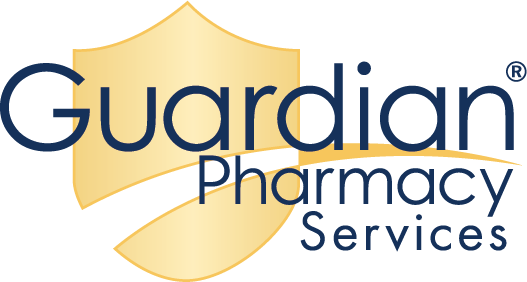Preventing Medication Errors in Assisted Living and LTC: Collaborative Approaches for Better Outcomes
Ensuring resident safety is the top priority for assisted living and long-term care (LTC) community operators and their care teams. While medication errors remain a persistent challenge across all healthcare settings, with proactive strategies and collaborative efforts with the LTC pharmacy partner, operators can ensure many of these errors are prevented before they occur. By focusing on training, embracing innovation, and fostering a culture of vigilance, operators can significantly reduce error rates and improve clinical outcomes, ensuring residents receive the highest available quality of care.
Prevalence of Medication Errors in LTC
Medication errors continue to be a significant concern in all healthcare settings, including LTC, with estimates indicating that between 16–27% of LTC residents experience them. These errors can have serious outcomes, with up to one in ten medication errors resulting in serious medical complications. Each year, there are 800,000 preventable medication-related injuries in LTC communities. Moreover, adverse drug events associated with these errors cost the healthcare system over $4 billion per year in additional expenses. The good news is about 40% of adverse medication events are thought to be preventable. This highlights an opportunity for improvements in medication management practices and enhanced collaboration with the healthcare team..
The Human Element in Medication Errors
Medication errors can happen to anyone on the care team, regardless of experience or education. Whether it’s a simple omission or a more complex mistake, the repercussions can be severe. As a nurse with 28 years of experience, I still vividly recall the gut-wrenching feeling when I realized I had contributed to my first medication error. It was a transformational moment that has stayed with me throughout my career. Thankfully, the outcome wasn’t dire, but it was a stark reminder of the high stakes involved in resident care.
The Impact of Medication Errors
The effects of medication errors are far-reaching, extending beyond individual residents to affect care teams, families, organizations, and the broader healthcare community. For residents, these errors can lead to adverse drug reactions, falls, treatment failures, exacerbation of medical conditions, hospitalizations, disabilities, and even fatalities. The emotional and psychological impact on residents, families and caregivers cannot be overstated. As caregivers, we are driven by a commitment to “do no harm,” and often experience significant emotional distress when errors do occur.
From a financial perspective, medication errors contribute to rising costs within LTC. Additional medical interventions, prolonged treatments, hospitalizations, and legal expenses associated with malpractice claims all add to the financial burden. Operators may also face legal liabilities, regulatory sanctions, and reputational damage, further straining resources and diverting attention from the high-quality care residents deserve.
Understanding the Root Causes
Medication errors can occur at any stage of the medication management process, from prescribing and transcribing to dispensing and administering. The National Coordinating Council for Medication Error Reporting and Prevention (NCC MERP), defines a medication error as follows:
“A medication error is any preventable event that may cause or lead to inappropriate medication use or patient harm while the medication is in the control of the health care professional, patient, or consumer.”
One of the most surprising findings is that medication errors are most common at the ordering or prescribing stage, accounting for nearly 50% of all errors. Miscommunication between healthcare providers, inadequate medication histories, and lack of access to resident information are significant contributors to these errors. In LTC and assisted living settings, where residents often have complex medical needs, effective communication and complete resident profiles are essential to reducing medication errors.
Strategies for Prevention
To mitigate the risk of medication errors, care teams must adhere to the fundamental “Rights of Medication”—Right Resident, Right Medication, Right Dose, Right Route, and Right Time. Further, ensuring the Right Reason for use and the Right Documentation are crucial to preventing errors. However, these basic principles must be supported by robust processes and systems that ensure accuracy at every step of the medication pathway.
- Right Resident: Confirming the resident’s identity using at least two unique identifiers, such as name and date of birth, is crucial. In LTC settings, where residents may not always be able to identify themselves, having current photographs available at the point of medication administration can be a valuable safeguard.
- Right Medication: Double-checking the medication label against the medication administration record (MAR) or electronic health record (EHR) is essential to prevent errors related to medication selection. The use of barcode scanning technology, where available, can further enhance accuracy by verifying that the correct medication is being administered.
- Right Dose: Ensuring the correct dosage is administered requires careful attention to detail. Simple mistakes, such as pressing the wrong key on a keyboard, can have serious consequences. Operators should implement checks and balances to verify dosages before administration.
- Right Route: Administering medication via the correct route is critical. Errors in this area can result in ineffective treatment or harm to the resident.
- Right Time: Timing is also a crucial factor in medication administration. Operators must ensure that medications are given at the prescribed intervals to maintain therapeutic levels and avoid complications.
Addressing Systematic Issues
Beyond individual vigilance, addressing systemic issues is vital for reducing medication errors in LTC and assisted living communities. Operators must invest in ongoing training and education for staff, particularly in the use of technology and medication management systems. Operators should consider fully embracing newer medication management technology that facilitates closer community-pharmacy collaboration, such as electronic health records (EHR) integrated with the LTC pharmacy system and real-time pharmacy communication via mobile applications. Additionally, fostering a culture of open communication and continuous learning can help identify potential risks before they lead to errors.
Staffing shortages, high resident volumes, and increased workloads are significant challenges that can contribute to errors. LTC and assisted living operators should prioritize adequate staffing and support for care teams to ensure they can perform their duties effectively and safely.
How an LTC Pharmacy Can Help
LTC pharmacies employ experienced pharmacists, pharmacy technicians, and nurses that can provide training, guidance, and resources to community staff and prescribers on medication management related topics including:
- The “rights” of medication administration, including how to verify the resident’s identity, check medication labels for accuracy, measure the correct dosage and administer medications at the appropriate time and route
- Performing quality control audits, such as medication storage area audits and “MAR to cart” audits
- Use of high-risk medications, e.g., hypoglycemic agents, antibiotics, opioids and naloxone and issues like fall prevention and infection control
- Deprescribing and other strategies to reduce the incidence of polypharmacy, which contributes to medication errors
Further, LTC pharmacies can offer direct access to a consultant pharmacist and nurse account manager to assist with policies, procedures and recommendations to maintain safety and compliance. Operators should also expect their pharmacy partner to provide data and analytics on clinical interventions performed by their pharmacists, such as interventions for inappropriate doses or drug interactions, that protect residents from medication harm.
Conclusion
Preventing medication errors requires a multifaceted and collaborative approach that includes adherence to established protocols, continuous education, embracing advancements in technology, and systemic improvements. While the challenges are significant, the potential to save lives and improve resident outcomes makes the effort worthwhile. By working together with their LTC pharmacy partner and remaining vigilant, operators and their care teams can minimize the risk of medication errors and ensure resident safety remains at the forefront of care.
References:
Ferrah N, Lovell JJ, Ibrahim JE. Systematic review of the prevalence of medication errors resulting in hospitalization and death of nursing home residents [published online November 21, 2016]. J Am Geriatr Soc. 2016. DOI: 10.1111/jgs.14683


Wendy Kallaher, RN.
National Account Manager, Guardian Pharmacy Services
Wendy received her Bachelor of Science Degree in Nursing from U.A.B in 1996. An experienced registered nurse, she began her career with Guardian in 2006 when she joined the Birmingham pharmacy. In 2021, she transitioned to Guardian’s support services team. She currently serves as the National Account Manager where she leads Guardian’s account management initiatives and provides support for national account partnerships.








